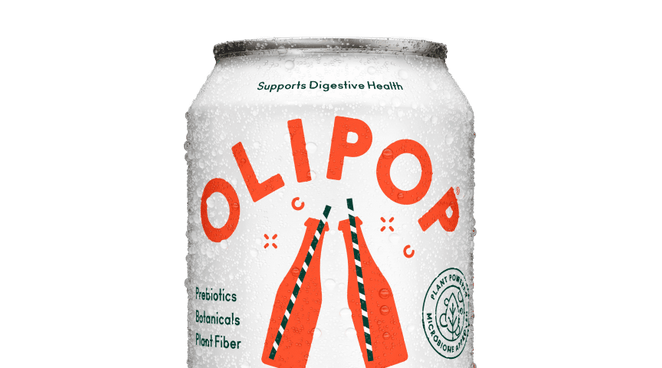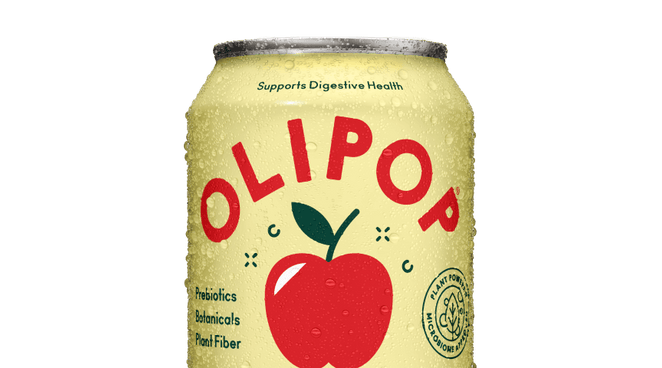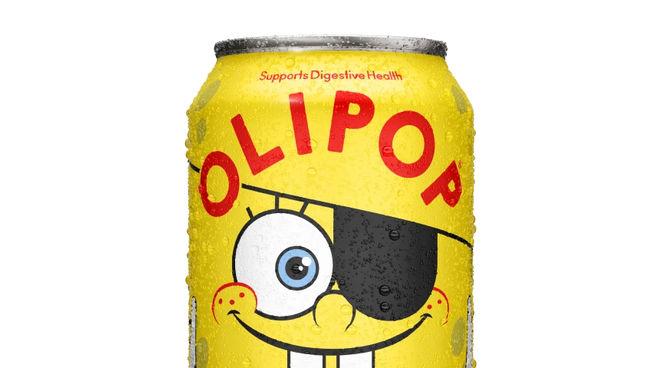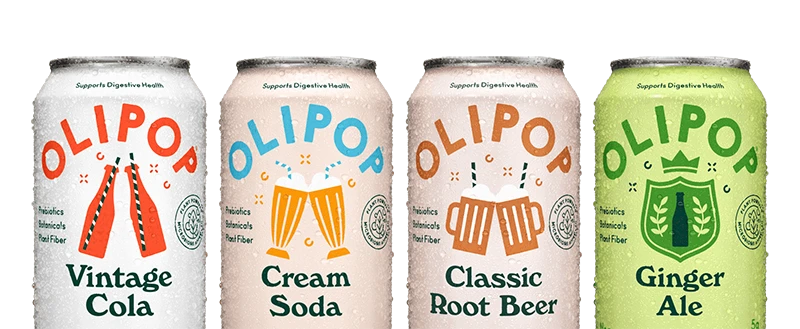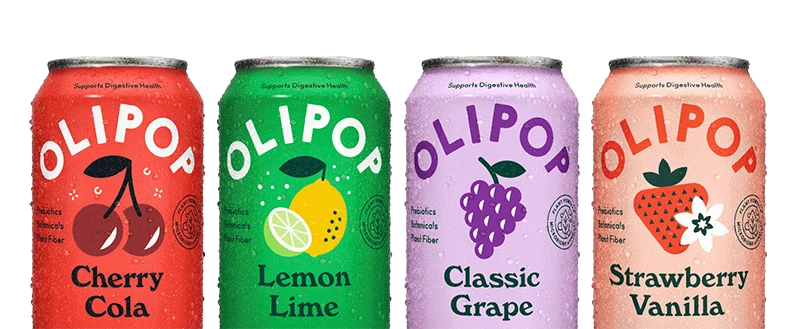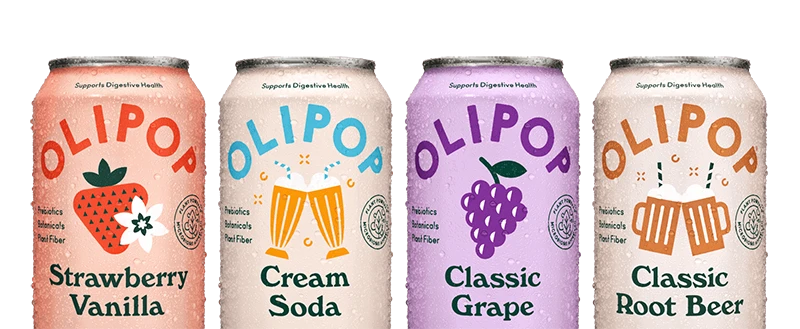We all know excess sugar isn't great for us, but reducing sugar from your diet can be difficult. Especially if you don't have an equally delicious alternative.
As the world becomes increasingly health-conscious, we've seen a boom in the diversity and availability of alternative sweeteners. From artificial sweeteners like aspartame and sucralose to plant-sourced alternatives like stevia leaf extract, sugar substitutes are widely used to replace sugar in both food and drink products.
But what exactly are sugar substitutes like stevia leaf extract, and what makes them different from sugar? Let's dive in to learn more.
Sugar vs. Sugar Substitutes
Sugar isn't necessarily the enemy. After all, it's an ingredient naturally present in foods like fruit and milk. But these naturally occurring sugars are generally not the primary concern in a balanced diet.
Added sugars are the ones to watch out for. As the name implies, they are sugars added to foods during processing, and they can contribute to higher-than-necessary sugar intake. Consuming too much added sugar may have negative effects on your health, which is why many health organizations recommend limiting it. According to the USDA, added sugars account on average for almost 270 calories—or more than 13% of total calories—per day in the U.S. population. [1]
Consuming excess sugar can add up in your diet. Excess calories coming from sugar can eventually be stored as fat.
This is where sugar substitutes come in. Sugar substitutes are food additives used to sweeten foods and drinks while reducing your intake of sugar. Most sugar substitutes are either low or zero-calorie, such as stevia leaf extract. Below is a list of common sweeteners currently available in the market: [2]
- Aspartame
- Acesulfame potassium (Ace-K)
- Sucralose
- Neotame
- Advantame
- Saccharin
- Stevia leaf extract
- Luo Han Guo (monk fruit)
- Thaumatin
What Is Stevia?
Stevia sweeteners are made from purified compounds called steviol glycosides, which are derived from the leaves of the South American Stevia rebaudiana plant. These steviol glycosides, such as stevioside and rebaudioside, are responsible for stevia’s sweet taste and are used in foods and beverages as high-intensity, no-calorie sweeteners. These can be anywhere from 200 to 400 times sweeter than regular table sugar, ensuring a little goes a long way. [2]
Stevia leaf extract boasts a long history as both a sweetener and medicinal herb in indigenous communities across Paraguay and Brazil. Although it’s native to South America, it’s now grown worldwide. That means it’s common to find this sugar-free alternative in a wide range of foods and beverages, including coffee, tea, desserts, savory dishes, and soda (like OLIPOP!)
Stevia vs. Sugar
How does stevia leaf extract compare to sugar? Great question, glad you asked. Here are two of the main differences between sugar and stevia leaf extract:
- Stevia leaf extract is a zero-calorie sweetener: Stevia leaf extract’s intense sweetness means very little is needed, resulting in negligible calories. Sugar has about 16 calories per teaspoon (4 calories per gram). And all those calories are carbohydrates.
- Stevia leaf extract doesn't accumulate in the body: Stevia leaf extract travels straight to your colon, where it gets broken down into steviol glucuronide. Eventually, this steviol glucuronide ends up in the kidneys, where it's released as urine. Thus, stevia leaf extract is never stored in your body, whereas it's the opposite with sugar. [3]
Given what we know about how our bodies process stevia vs sugar, stevia leaf extract offers a great alternative for sweetening your foods and drinks while reducing your sugar and calorie intake.
What Does Stevia Leaf Extract Taste Like?
Stevia leaf extract is up to 400 times sweeter than sugar, which means you need a lot less to get the same benefit. As a result, most people find stevia leaf extract exceptionally sweet. And some people sense a slight aftertaste, however that depends on the type of stevia glycoside used in the formulation.
OLIPOP uses a type of stevia leaf extract that doesn't leave a lingering aftertaste. It tends to have a more sugar-like sweetness with a clean finish. When combined with other natural ingredients in our formula, it creates a balanced sweetness profile that complements the overall flavor of the soda.
Why Does OLIPOP Use Stevia Leaf Extract?
OLIPOP combines stevia leaf extract with fruit juice concentrate and cassava root syrup to create that perfectly balanced sweetness in each of our delicious flavors. We’ve opted for stevia leaf extract over sugar for several reasons:
Lower Sugar Intake
One of the major sources of added sugars in a typical American diet are sugar-sweetened beverages. In fact, they account for about 24% of total added sugar intake. [1] One of the major culprits in this category? Soda! By replacing sugar with stevia leaf extract and other sweeteners, we can do our part to help cut back on some of that intake.
Better Blood Sugar Response
Opting for stevia leaf extract instead of sugar helps reduce our sugar intake, which may support a lower glucose response. In 2025, we tested that theory. We completed our own at-home human clinical pilot study comparing OLIPOP Vintage Cola to a leading traditional cola. The focus of the study was on blood sugar response in healthy adults without diabetes, both in a fasted state and when consumed with a carbohydrate-rich meal. Over a 2- to 3-hour period, we measured a range of glycemic outcomes to see how each beverage impacted participants' blood sugar levels.
The results showed that participants consuming OLIPOP Vintage Cola showed a better-for-you blood sugar response compared to those who consumed traditional cola. This was true both when participants consumed the soda on its own and when they paired the soda with a carbohydrate-rich meal. We observed a slower rise to peak blood sugar levels with OLIPOP Vintage Cola, suggesting a steadier response.

Stevia Leaf Extract: The Takeaway
Long story short, stevia leaf extract is a great choice if you’re looking to cut down on calories, reduce added sugars from your diet, and enjoy the sweet tastes you love.
As we become more informed about how the ingredients in our foods and beverages affect us, it's only natural to become health advocates. By researching and studying the health effects of sugar, we can make better-informed decisions that work for our health goals. It all starts with small steps, such as cracking open a can of OLIPOP!
Sources
- U.S. Department of Agriculture and U.S. Department of Health and Human Services. Dietary Guidelines for Americans, 2020-2025. 9th Edition. December 2020. Available at DietaryGuidelines.gov.
- Aspartame and Other Sweeteners in Food. (2025, February 27). U.S. Food And Drug Administration. https://www.fda.gov/food/food-additives-petitions/aspartame-and-other-sweeteners-food
- Anton, S. D., Martin, C. K., Han, H., Coulon, S., Cefalu, W. T., Geiselman, P., & Williamson, D. A. (2010). Effects of stevia, aspartame, and sucrose on food intake, satiety, and postprandial glucose and insulin levels. Appetite, 55(1), 37–43. https://doi.org/10.1016/j.appet.2010.03.009
- Stevia leaf extract is a zero-calorie sweetener that comes from the leaves of the Stevia Rebaudiana plant.
- Stevia leaf extract is a great sugar substitute for sweetening your foods and beverages while reducing your added sugar intake.
- OLIPOP uses stevia leaf extract and other sweeteners like juice concentrates and cassava root syrup, giving our sodas 2 to 5 grams of sugar per 12oz can.


